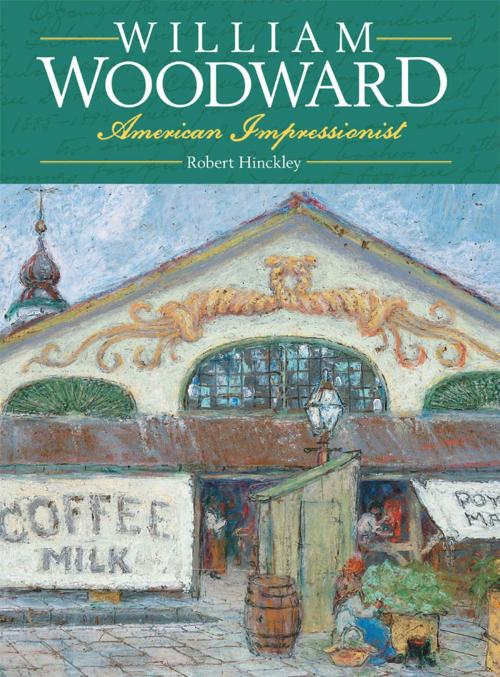William Woodward
American Impressionist
Nonfiction, Art & Architecture, General Art, Individual Artist, Art History, Artists, Architects & Photographers| Author: | George Schmidt, J. Richard Gruber, Jessie Poesch, Judith Bonner | ISBN: | 9781617031908 |
| Publisher: | University Press of Mississippi | Publication: | July 5, 2011 |
| Imprint: | University Press of Mississippi/Robert Hinckley | Language: | English |
| Author: | George Schmidt, J. Richard Gruber, Jessie Poesch, Judith Bonner |
| ISBN: | 9781617031908 |
| Publisher: | University Press of Mississippi |
| Publication: | July 5, 2011 |
| Imprint: | University Press of Mississippi/Robert Hinckley |
| Language: | English |
William Woodward (1859-1939) was a force in New Orleans and the art world, and his legacy endures. In this first compilation of examples of Woodward's work spanning his career, essayists offer unique perspectives on the artist and his art.
Woodward was a graduate of the Rhode Island School of Design and the Massachusetts Normal Art School. He started the School of Art and organized the Department of Architecture at Tulane University, and he taught evening art classes to citizens of New Orleans. His oil crayon paintings of the French Quarter were instrumental in preserving the French Quarter buildings from destruction, and he was a leader in the Arts and Crafts movement in New Orleans. He was a member of the American Institute of Architects. Woodward also organized the Art Association of New Orleans and the Decorative Art League for Women, which founded the manufacture of art pottery in New Orleans.
Woodward was a prolific artist and pioneered new techniques with his use of the Rafaelli oil crayon and the fiberloid dry etching process. Upon his retirement from Tulane in 1922, Woodward moved to Biloxi, Mississippi, where his paintings of the Mississippi Gulf Coast provide a historical record of an area now almost entirely changed by development and natural disasters. Woodward also traveled extensively and chronicled his travels in his art.
William Woodward (1859-1939) was a force in New Orleans and the art world, and his legacy endures. In this first compilation of examples of Woodward's work spanning his career, essayists offer unique perspectives on the artist and his art.
Woodward was a graduate of the Rhode Island School of Design and the Massachusetts Normal Art School. He started the School of Art and organized the Department of Architecture at Tulane University, and he taught evening art classes to citizens of New Orleans. His oil crayon paintings of the French Quarter were instrumental in preserving the French Quarter buildings from destruction, and he was a leader in the Arts and Crafts movement in New Orleans. He was a member of the American Institute of Architects. Woodward also organized the Art Association of New Orleans and the Decorative Art League for Women, which founded the manufacture of art pottery in New Orleans.
Woodward was a prolific artist and pioneered new techniques with his use of the Rafaelli oil crayon and the fiberloid dry etching process. Upon his retirement from Tulane in 1922, Woodward moved to Biloxi, Mississippi, where his paintings of the Mississippi Gulf Coast provide a historical record of an area now almost entirely changed by development and natural disasters. Woodward also traveled extensively and chronicled his travels in his art.















